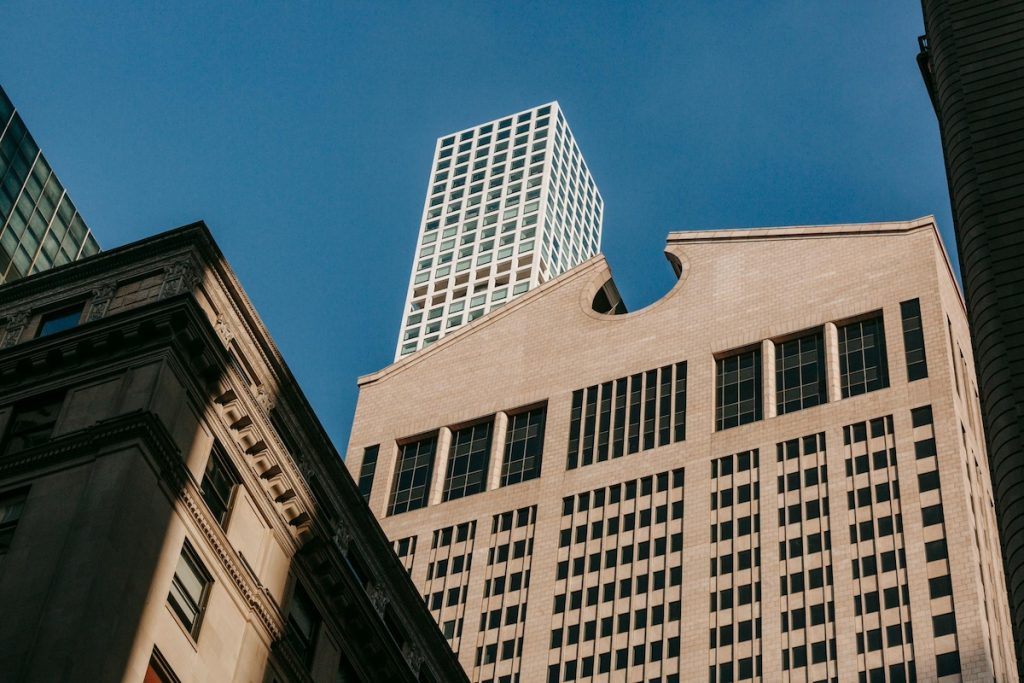One of the most critical decisions when planning a commercial property involves choosing the right construction material. Two of the most common options are frame and masonry construction.
Each has its unique benefits and drawbacks, which can significantly impact the longevity, safety, and overall cost of the project. In this article, we’ll dive into the differences between these two construction methods, helping you make an informed decision for your next commercial development.
Quick Comparison: Frame vs. Masonry Construction
Before delving into the details, let’s start with a quick comparison of frame and masonry construction:
- Material Composition: Frame construction typically uses wood, steel, or other lightweight materials, while masonry construction uses bricks, stones, or concrete blocks.
- Cost: Frame construction is generally more cost-effective and quicker to build, but masonry offers better durability and fire resistance.
- Durability: Masonry is known for its strength and long lifespan, whereas frame construction may require more maintenance over time.
- Fire Resistance: Masonry buildings offer superior fire resistance compared to frame buildings, which can be a significant factor in your decision.
Understanding these differences will guide you in selecting the most suitable construction method for your commercial property.
What is Frame Construction in Commercial Properties?
Definition and Composition
Frame construction involves building the skeleton of a structure using materials such as wood, steel, or engineered products. The frame provides support for the entire building and serves as the foundation for the walls, floors, and roof.
Types of Frame Construction
- Wood Frame: Commonly used in smaller commercial projects, wood frames are cost-effective and easy to work with.
- Steel Frame: Preferred for larger commercial buildings, steel offers greater strength and flexibility, making it ideal for structures that require large, open spaces.
Advantages of Frame Construction
- Cost-Effective: Frame construction is typically less expensive than masonry, making it a popular choice for budget-conscious projects.
- Faster Construction Time: With frame construction, buildings can be erected quickly, reducing labor costs and allowing for faster occupancy.
- Design Flexibility: Frame structures can be easily modified or expanded, providing greater flexibility in design.
Disadvantages of Frame Construction
- Fire Risk: Wood frame buildings, in particular, are more susceptible to fire, which can lead to higher insurance premiums.
- Durability Concerns: Frame buildings may require more frequent maintenance, especially in regions prone to pests like termites or extreme weather conditions.
What is Masonry Construction in Commercial Properties?
Definition and Composition
Masonry construction involves building with individual units of brick, stone, or concrete, which are typically bound together by mortar. This method creates a structure that is both solid and durable.
Types of Masonry Construction
- Brick Masonry: A traditional choice, brick masonry offers an aesthetically pleasing finish and is highly durable.
- Stone Masonry: Known for its strength and natural beauty, stone masonry is often used in high-end commercial properties.
- Concrete Block Masonry: Concrete blocks are a versatile option that can be used for load-bearing walls, foundations, and more.

Advantages of Masonry Construction
- Durability: Masonry buildings are incredibly durable and can withstand harsh weather conditions, making them ideal for long-term investments.
- Fire Resistance: Masonry materials like brick and stone are non-combustible, offering superior fire resistance compared to frame structures.
- Energy Efficiency: Masonry walls provide excellent thermal mass, helping to maintain a stable indoor temperature and reducing energy costs.
Disadvantages of Masonry Construction
- Higher Costs: The materials and labor required for masonry construction are typically more expensive than those for frame construction.
- Longer Construction Time: Masonry projects take longer to complete due to the complexity of the work, which can delay the building’s occupancy.
- Limited Design Flexibility: Once a masonry structure is built, it’s more challenging to modify or expand compared to frame buildings.
Key Differences Between Frame and Masonry Construction
Material and Structural Integrity
Frame construction relies on lightweight materials like wood and steel, which offer flexibility and ease of construction. In contrast, masonry construction uses heavy, solid materials like brick, stone, and concrete, providing exceptional structural integrity and resistance to external forces.
Cost Comparison
Frame construction generally comes with lower initial costs due to cheaper materials and quicker build times. However, masonry construction, while more expensive upfront, offers long-term savings through reduced maintenance and energy costs, thanks to its durability and thermal efficiency.
Fire Resistance and Safety
Safety is a critical consideration, especially in commercial properties. Masonry buildings are naturally fire-resistant, significantly reducing the risk of fire damage. Frame buildings, particularly those constructed with wood, are more vulnerable to fire, which may lead to higher insurance premiums and additional safety measures.

Durability and Longevity
Masonry construction is known for its longevity, often lasting for several decades with minimal maintenance. Frame buildings, while durable, may require more frequent repairs and maintenance, especially in regions with severe weather or pest issues.
Environmental Impact
Masonry materials like brick and stone offer better energy efficiency, contributing to lower heating and cooling costs over the life of the building. Frame construction, particularly with wood, has a lower carbon footprint initially but may not provide the same level of energy efficiency as masonry in the long run.
Common Uses of Frame vs. Masonry in Commercial Properties
Industries Favoring Frame Construction
Frame construction is popular in industries that require rapid development and lower costs, such as retail spaces, small offices, and certain types of industrial facilities.
Industries Favoring Masonry Construction
Masonry is preferred in sectors where durability, safety, and aesthetics are paramount, such as educational institutions, government buildings, and luxury commercial properties.
Case Studies or Examples
- Frame Construction: Retail chains like fast-food restaurants often use wood or steel frame construction for quick setup and easy modifications.
- Masonry Construction: Historic buildings and high-end office spaces often utilize brick or stone masonry for their timeless appeal and longevity.
How to Choose Between Frame and Masonry for Your Commercial Property
Factors to Consider
When choosing between frame and masonry construction, consider factors such as budget, timeline, location, and the specific needs of your business. For example, a retail business might prioritize speed and cost, making frame construction the better option. In contrast, an educational institution may value safety and durability, leaning towards masonry.
Regional and Climate Considerations
The local climate plays a significant role in your decision. Masonry construction is ideal for areas prone to hurricanes, tornadoes, or wildfires due to its durability and fire resistance. Frame construction might be more suitable in regions with mild weather where rapid development is a priority.
Consulting with Professionals
Before making your final decision, it’s essential to consult with construction professionals who can provide expert advice tailored to your specific project. Their insights can help you weigh the pros and cons and select the most suitable construction method for your commercial property.
Conclusion
When it comes to commercial construction, the choice between frame and masonry is not one-size-fits-all. While frame construction offers benefits like cost-effectiveness and quicker build times, masonry construction stands out for its unparalleled durability, fire resistance, and energy efficiency.
At Leidal and Hart, we recognize the significant advantages of masonry construction, especially for businesses looking to invest in long-lasting, safe, and energy-efficient commercial properties. Our team is equipped with the expertise and experience to manage your masonry projects from start to finish. We use high-quality materials like brick, stone, and concrete to create structures that are built to endure and stand the test of time.
Why Choose Leidal and Hart for Your Masonry Construction Needs?
- Unmatched Durability: Our masonry projects are designed to last for decades with minimal maintenance, providing you with peace of mind and long-term savings.
- Superior Fire Resistance: We prioritize safety in all our constructions, and our masonry buildings offer exceptional fire resistance, which can lower your insurance premiums and reduce risks.
- Energy Efficiency: Our masonry constructions provide excellent thermal mass, helping you maintain a stable indoor temperature, reducing energy costs, and promoting sustainability.
- Aesthetic Appeal: Whether you’re aiming for a classic brick facade or a modern stone finish, our masonry work adds aesthetic value to your property, enhancing its market appeal.
Partnering with Leidal and Hart means choosing a team that brings decades of expertise, a commitment to excellence, and a passion for delivering high-quality masonry construction. We work closely with our clients to understand their specific needs and provide customized solutions that align with their vision and business goals. Whether you’re developing a new office building, a retail space, or an institutional facility, trust Leidal and Hart to handle your commercial masonry project with the professionalism and skill that your business deserves.
Visit us at Leidal and Hart to learn more about how we can bring your construction vision to life with our superior masonry services.
FAQs
What are the main differences between frame and masonry construction?
Frame construction uses lightweight materials like wood or steel, while masonry construction uses heavy materials like brick or stone. Frame construction is typically faster and cheaper, but masonry offers better durability and fire resistance.
Which type of construction is more cost-effective for commercial properties?
Frame construction is generally more cost-effective in terms of initial costs and construction time. However, masonry may offer better long-term value due to its durability and lower maintenance costs.
How does the local climate affect the choice between frame and masonry construction?
In areas with extreme weather conditions like hurricanes, tornadoes, or wildfires, masonry construction is often preferred due to its durability and fire resistance. In milder climates, frame construction might be more appropriate due to its faster build times and lower costs.
Is masonry construction more environmentally friendly than frame construction?
Masonry construction can be more energy-efficient due to its thermal mass, which helps regulate indoor temperatures and reduces energy consumption. However, the environmental impact also depends on the sourcing and manufacturing processes of the materials used.
Can Leidal and Hart help with both new masonry construction and renovations?
Yes, Leidal and Hart specialize in both new masonry construction and renovations. Whether you’re starting from scratch or looking to enhance an existing structure, we have the expertise to deliver high-quality masonry work that meets your needs.
